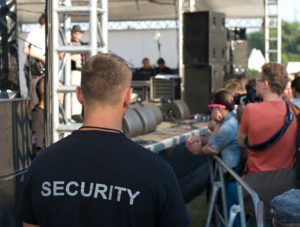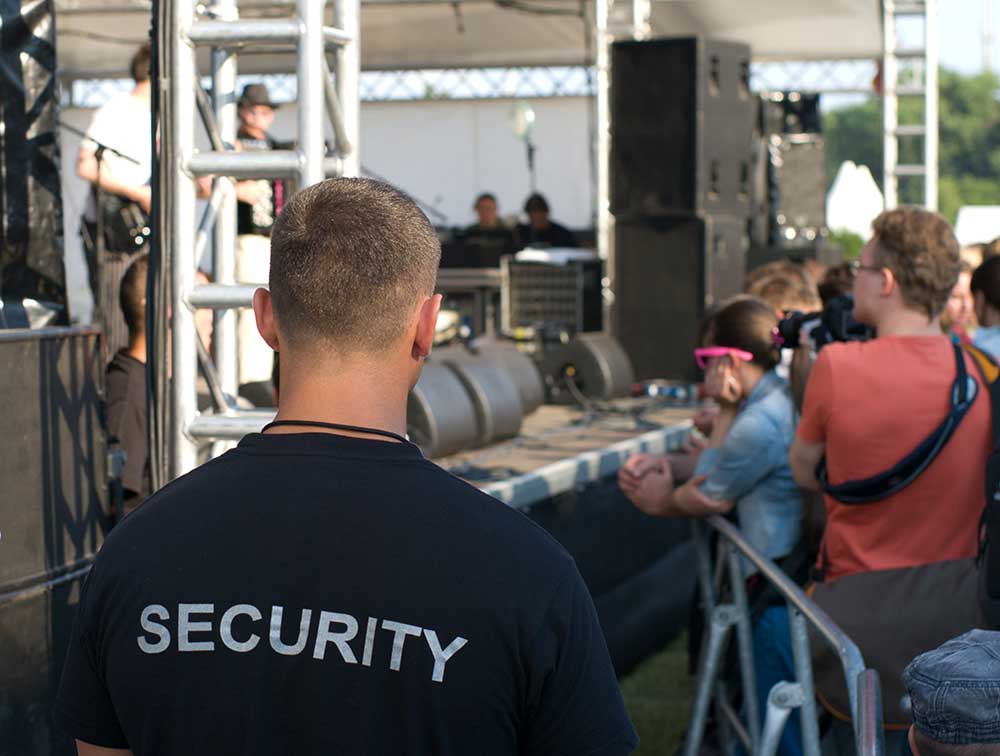Disclaimer: The information on our website is provided for general information purposes only. We make no representations or warranties of any kind, express or implied, about the completeness, accuracy, reliability, suitability or availability with respect to the website or the information contained on our website for any purpose. Any reliance on such information is therefore strictly at your own risk and we are not liable for any damages or losses arising out of or resulting from your reliance on any information contained on our website.
Security guards and gaming surveillance officers are the keepers and protectors of private or public property against theft, illegal activity, vandalism or terrorism attacks. They would regularly patrol assigned areas and closely check visitor access. A security guard and gaming surveillance officer also enforces laws on an employee’s property. They collaborate and assist in emergency services or law enforcement in some situations.
Watch a video to learn what a security guard does:
How to Become a Security Guard
Most security guards need at least a high school diploma, while a gaming surveillance officer might need more experience in the areas of video and security operations and monitoring. Some are armed therefore it may also be necessary to get trained and register their firearms with the state they reside in. Most employers provide on-the-job training for new hires, however, the amount and type of training varies from employer to employer.
Job Description of a Security Guard

There are a variety of job titles that fall under the security and surveillance career field. Listed below are brief descriptions of several occupations that fall into this category. A private detective and investigator find and analyze facts in a variety of cases such as personal, legal, and financial concerns. They also provide other expertise in the areas of verification of people’s backgrounds, insurance frauds, and even investigate investment groups to protect a client against fraud. While a gaming surveillance officer works mostly in casinos. They look for cheating or theft. Often times they are observing game tables and dealers. They monitor the compliances with rules, regulations, and laws in place at the facility they work at.
Security guards work in a wider variety of places such as retail stores, offices, or any public building where security is required. Enforcing rules and monitoring the premised are regular parts of the job therefore, writing and communication skills would be helpful. A security guard sometimes will specialize in working with armored cars by protecting money or valuables in transit. This job would normally require wearing bulletproof vests and the wearing of a firearm. Some security guards direct traffic and can be seen working at stadiums and parks. These guards maintain and control large crowds and even assist in directing traffic flow at times.
All of these positions may need to hold and detain a violator and be required to give court testimonies concerning any involvement in the breaking of the law. In an emergency situation they would ask for assistance from appropriate departments such as fire, police, or ambulances. Some may work with undercover detectives to monitor hotels, hospitals, banks or even guard museums. This requires the observation of people, perhaps searching backpacks, or handbags and/or monitoring cameras.
Most in this career field work full time and have a variety of differing shifts. You are required to stand the majority of the shift unless you are in surveillance then you may be sitting and watching monitors all day. Although the work can be routine oriented it can also be hazardous when altercations occur. Since there is a wide spectrum of employment settings security officer has many opportunities for employment.
Security Guard Career Video Transcript
Whether employed by museums, military bases, or casinos, security guards and gaming surveillance officers observe and patrol operations to maintain order and protect property against theft, vandalism, and illegal activity. Security guards enforce rules on a property, and deter criminal activity, either by walking the facility and grounds to conduct security checks, or monitoring surveillance cameras and alarms. They guard merchandise in retail stores… students and facilities at universities and schools, verify visitor IDs and keep facilities safe at factories, office buildings, hospitals, and military bases.
At sporting events and concerts, guards control crowds and direct traffic. While at bars, they may collect cover charges and check IDs. At casinos, gaming surveillance officers and gaming investigators watch video monitors fed by hidden cameras to check for cheating and theft —by either employees or patrons. They notify the security staff when they spot any potential trouble. Security and surveillance work calls for either many hours sitting in front of screens, or long shifts spent standing or patrolling.
It can be routine work until a problem arises when it can become hazardous. Work schedules typically include nights and weekends. Most positions require a high school diploma or equivalent. Experience with video surveillance is helpful. Security guards may need to register with the state, especially if they carry a firearm. Drug testing is common, before and during employment.
Article Citations
Bureau of Labor Statistics, U.S. Department of Labor, Occupational Outlook Handbook, Security Guards.
National Center for O*NET Development. 33-9032.00. O*NET OnLine.
The career video is in the public domain from the U. S. Department of Labor, Employment and Training Administration.


